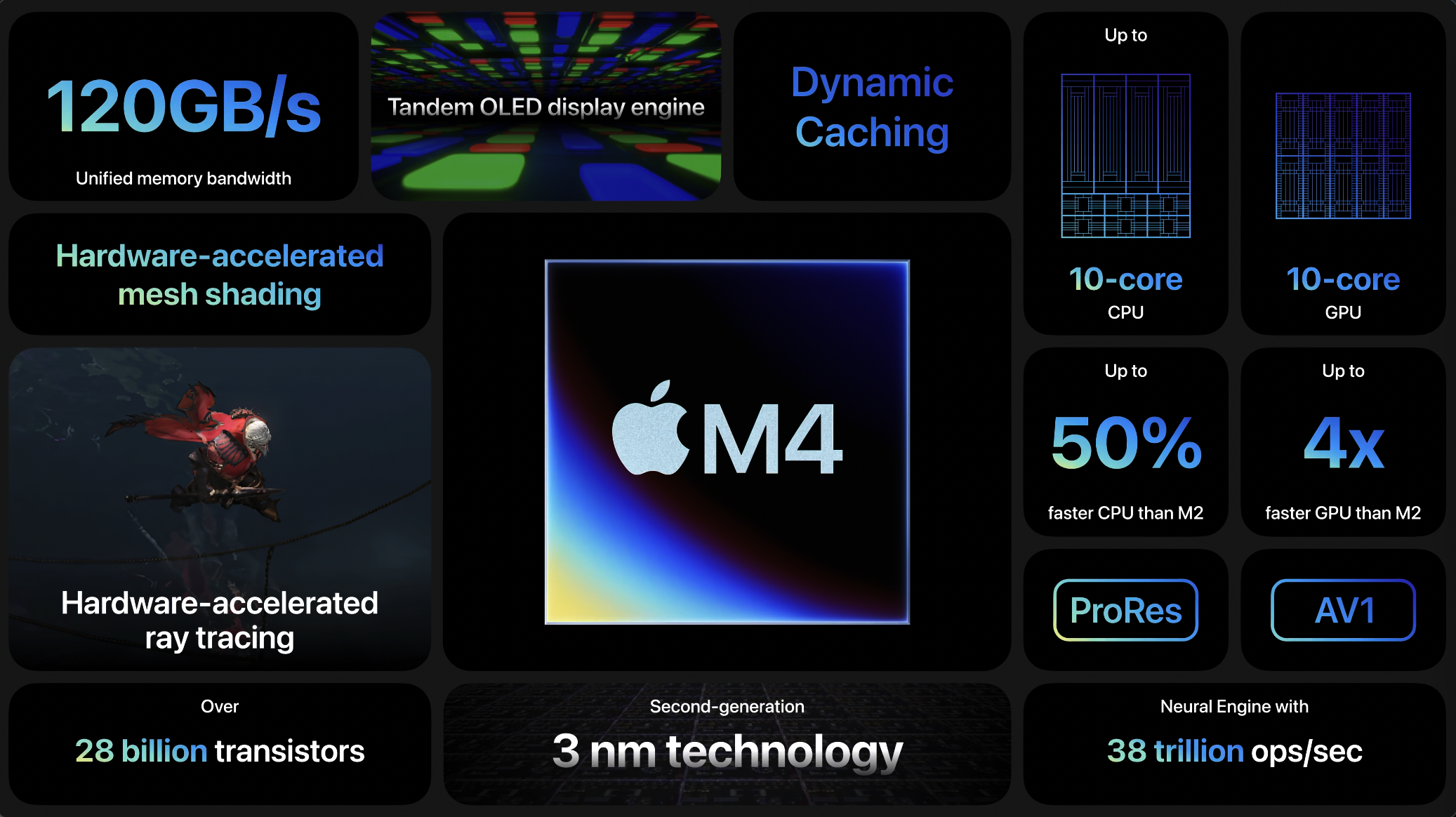The Apple silicon end-game comes into focus with iOS 18 AI features set to be powered by data centers full of Apple's chips, just not the ones you'd expect
M-series chips are everywhere.

It's probably fair to say that the rumor mill has very much settled on the expectation that Apple's WWDC event on June 10 will be full to the brim with new AI features. Both iOS 18 and macOS 15 are tipped to sport improved AI capabilities, while we can expect some of that to also spill over onto the iPad and Apple Vision Pro as well. There have been a variety of different rumors around that expectation, including the belief that some of those features will be powered by on-device AI smarts rather than using the cloud.
That has obvious benefits, not least increased performance and privacy. But there is only so much that can be done with the processing power and storage afforded something like an iPhone, let alone things like Apple Watches and eventually, HomePods. There has to be a server-side, cloud-based component eventually, if only to handle the heavy lifting the likes of which the most impressive generative AI features demand. There had been rumors Apple was contemplating filling a data center with custom Apple silicon to make that happen. Now, we know more.
Recent reports of Project ACDC, an initiative to use Apple's chips in servers, set the tone. Now, a new report suggests that Apple is further along that process than we might have previously thought. What's more, the servers will be online later this year to handle the load required by iOS 18 and the rest of Apple's software updates. But Apple won't use a new chip this time around, it'll use a chip that we're already very familiar with. And while you might think that something based on the recently-announced M4 is the obvious choice, you'd be very wrong indeed.
New features, old chips
Apple's new M4 iPad Pro might have the newest generation silicon of all, but Bloomberg's Mark Gurman reports that Apple will turn to a tried and tested chip instead. That chip will be the M2 Ultra, silicon that already powered the Mac Studio and Mac Pro.
"The first AI server chips will be the M2 Ultra, which was launched last year as part of the Mac Pro and Mac Studio computers, though the company is already eyeing future versions based on the M4 chip," Gurman explains. He says that while the new servers will handle more complex AI workflows, "simpler AI-related features will be processed directly on iPhones, iPads, and Macs." That matches previous reports and sticks to the belief that Apple would rather keep AI processing on-device wherever possible.
"Relatively simple AI tasks — like providing users a summary of their missed iPhone notifications or incoming text messages — could be handled by the chips inside of Apple devices," Gurman goes on to reiterate. "More complicated jobs, such as generating images or summarizing lengthy news articles and creating long-form responses in emails, would likely require the cloud-based approach — as would an upgraded version of Apple’s Siri voice assistant."
Expectations for iOS 18 are of course high, as well they should be. Apple has been hinting at a new focus on AI for months now and Apple has lagged behind the competition for too long. While the hope is that these improvements will give Siri the shot in the arm it so desperately needs, AI will have its tendrils in other parts of the iPhone experience as well. All eyes will be on Apple to see how it can bring its new AI muscle to bear.
Master your iPhone in minutes
iMore offers spot-on advice and guidance from our team of experts, with decades of Apple device experience to lean on. Learn more with iMore!
More from iMore

Oliver Haslam has written about Apple and the wider technology business for more than a decade with bylines on How-To Geek, PC Mag, iDownloadBlog, and many more. He has also been published in print for Macworld, including cover stories. At iMore, Oliver is involved in daily news coverage and, not being short of opinions, has been known to 'explain' those thoughts in more detail, too. Having grown up using PCs and spending far too much money on graphics card and flashy RAM, Oliver switched to the Mac with a G5 iMac and hasn't looked back. Since then he's seen the growth of the smartphone world, backed by iPhone, and new product categories come and go. Current expertise includes iOS, macOS, streaming services, and pretty much anything that has a battery or plugs into a wall. Oliver also covers mobile gaming for iMore, with Apple Arcade a particular focus. He's been gaming since the Atari 2600 days and still struggles to comprehend the fact he can play console quality titles on his pocket computer.
